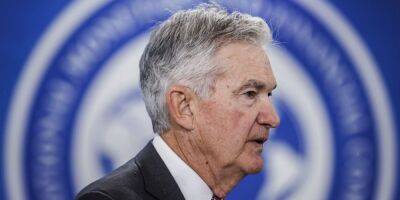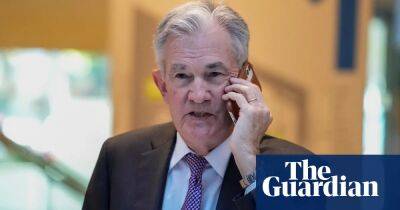Bank of England ‘may need to cut interest rates earlier and faster’
The Bank of England may need to cut interest rates earlier and faster as the impact from previous increases drags down the economy and pulls back inflation, one of its senior policymakers has said.
Silvana Tenreyro, a member of the central bank’s rate-setting monetary policy committee (MPC), said there were signs inflation would fall “well below” the central bank’s 2% target rate after a sharp decline in global energy prices.
In a speech to the Royal Economic Society’s annual conference in Glasgow on Tuesday, she said: “I expect that the high current level of Bank rate will require an earlier and faster reversal, to avoid a significant inflation undershoot.”
The Bank last month raised interest rates for an 11th consecutive time, to 4.25%. Financial markets expect a further quarter-point rate increase at the MPC’s next meeting in May, and are forecasting a more than 50% chance of a further rise by August.
However, Tenreyro said global supply chain bottlenecks triggered by the Covid pandemic and a surge in wholesale energy markets were beginning to unwind – leading to a sharp decline in inflation.
Oil prices jumped on Monday after some of the world’s biggest producers agreed to cut production. Prices are, however, still significantly lower than they were immediately after the Russian invasion of Ukraine a year ago, while the amount paid for gas on wholesale markets has fallen back from post-invasion highs.
Tenreyro said the drop had been faster than the Bank anticipated. “Oil and gas prices and futures have fallen sharply, while indices of global supply chain disruptions and shipping costs are back to pre-pandemic levels.”
She said previous rate increases would gradually have an impact over the course of this year and next, as
Read more on theguardian.com



















